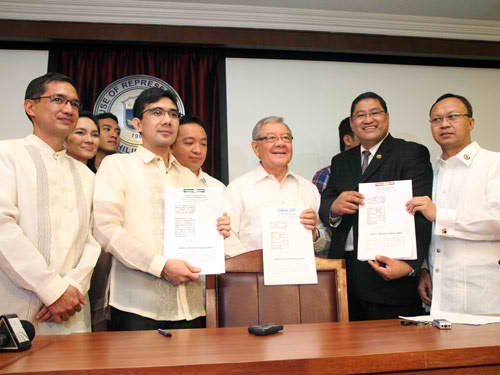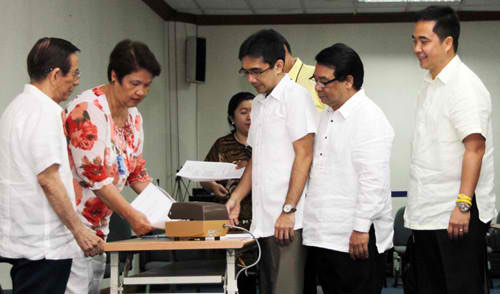In striving to arrive at our decision, we narrowed our concerns into 4.
1. Did Chief Justice Renato Corona violate the Constitution?
2. Did he do it knowingly and willingly?
3. Was the violation of such gravity as to warrant his impeachment?
4. Has Justice Corona betrayed the public trust?
Ironically, the answers to the first two questions were supplied by the defendant himself.
Jutice Corona admitted that he did not disclose in his yearly Statement of Assets, Liabilities and Net Worth (SALN) over P180 million in cash and near cash assets.
While not in consonance with the SALN law, Justice Corona gave as his excuse the FCDU Law. Yet nowhere in that FCDU Law is the depositor not allowed to disclose his own deposits. All the FCDU Law prohibits is the depository banks and third parties from disclosing the account and its deposits.
Searching for the answer to the third question took a little longer. Is the violation of the SALN law of such gravity as to merit impeachment? (i.e. Dismissal and perpetual disqualification?)
Not surprisingly, the answers were again supplied by Justice Corona and his High Court.
Numerous decisions on cases involving SALN law violations have been handed down by the Supreme Court. Among others:
1. Rabe vs. Flores (1997)
2. Concerned Taxpayer vs. Doblada (2005)
3. Carabeo vs. Court of Appeals (2009)
4. Office of Court Adminsitrator vs. Usman (2011)
5. Flores vs. Montemayor (2011)
In Rabe vs. Flores, for example, the Supreme Court ruled that a simple, humble Court interpreter in Davao del Norte had to be dismissed from service because she had failed to disclose in her SALN that she had rented a market stall in the PANABO market. The High Court also ruled that Ms. Flores was perpetually disqualified from holding public office.
I went a bit further and posed a hypothetical question to myself. If the Court had been supplied with a bank passbook of Ms. Flores which showed a deposit of $10,000 which had not been reported in her SALN, would the Court’s ruling have been the same? Dismissal and perpetual disqualification?
My plain, ordinary, legally untrained but reasonable mind tells me “yes”, the Supreme Court would have ruled similarly.
If these public officers had been dismissed from office for failing to declare far less remarkable and less valuable assets in their SALN’s, despite and regardless of their excuses, then there is more reason to apply the law when the assets in question amount to over P180 million.
We should not penalize the poor man for stealing a bicycle but rule that the rich man must first steal a Mercedes to be penalized.
My fourth and last question was: Did Justice Corona betray the public trust?
Again, ironically, the answer was supplied by Justice Corona and the Supreme Court.
For contained in the New Code of Judicial Conduct for the Philippine Judiciary under Canon 2 which covers Integrity are 2 sections.
1. Judges shall ensure that not only is their conduct above reproach but that it is perceived to be so in the view of a reasonable observer.
2. The behavior and conduct of judges must reaffirm the people’s faith in the integrity of the judiciary. Justice must not merely be done, but must also be seen to be done.
Mr. President, we all must face the Ms. Floreses of our country. We must be able to tell them that justice is, to the best of our ability, being applied equally to the rich and to the poor, to the powerful and the powerless.
The Senate Impeachment Court must restore the people’s faith in the Judicial System. The Senate must bring about a higher level of moral standards in governance.
I therefore find for the people and the prosecution. GUILTY on Article II.

